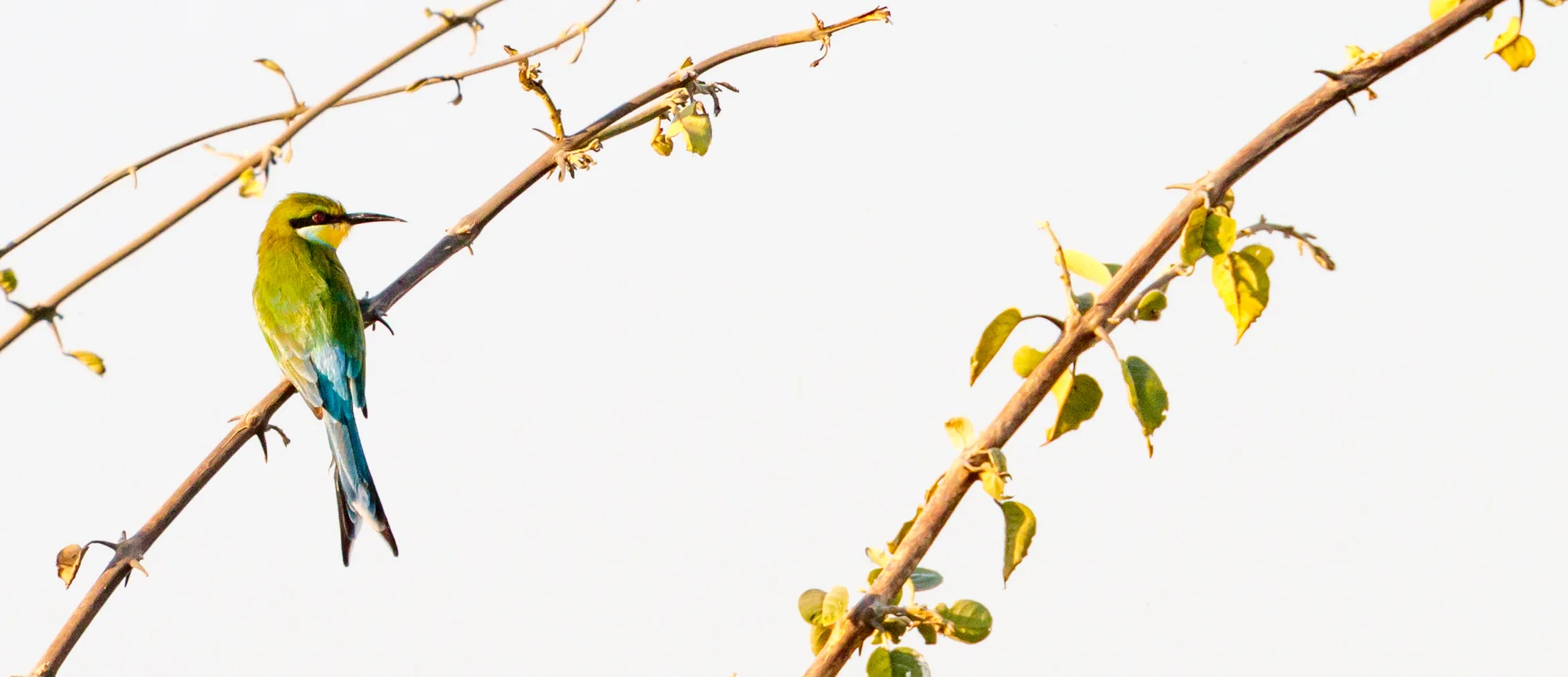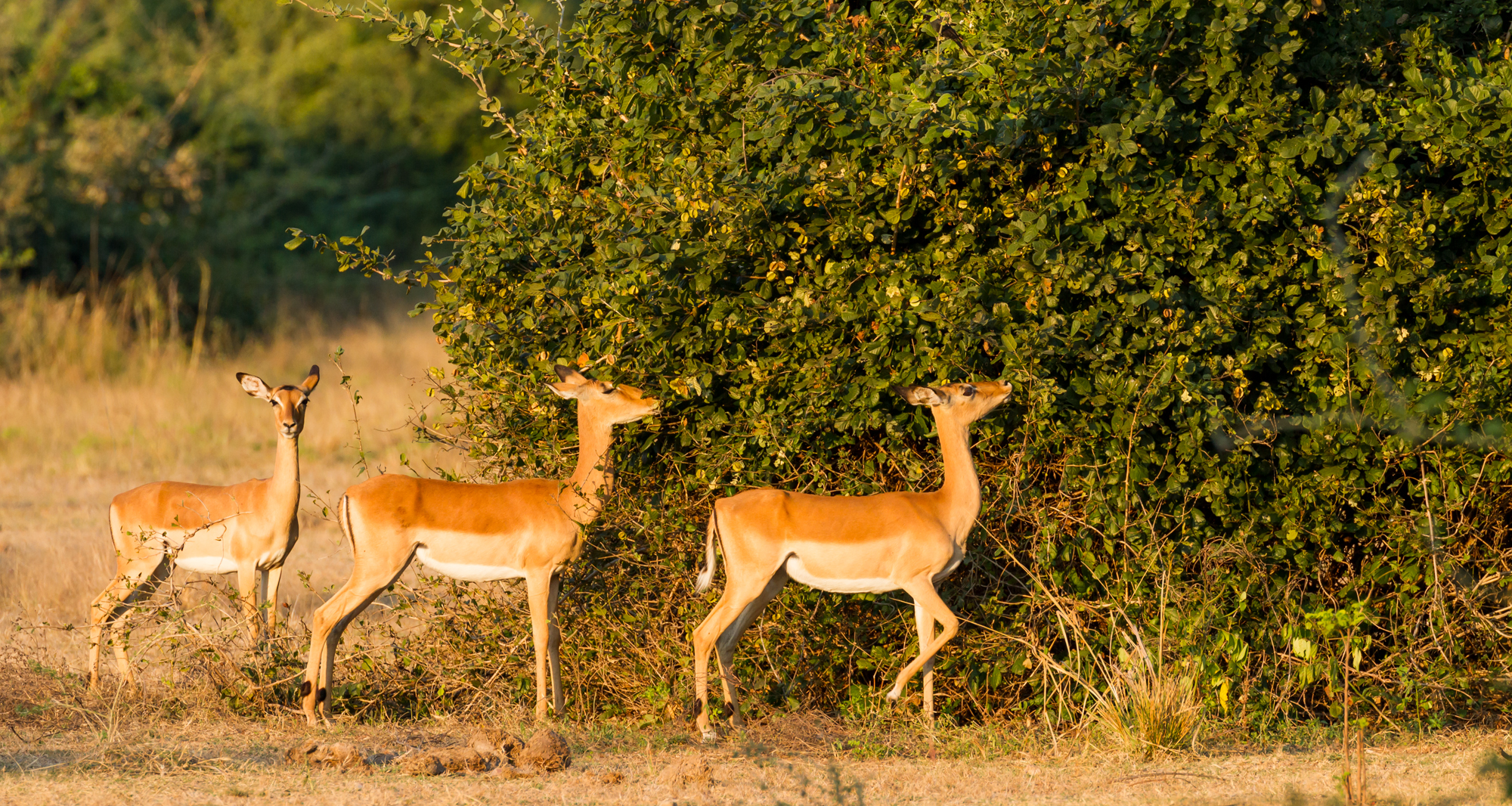Zambia, 2017
Lion near Flatdogs Camp. Note the mohawk-like mane characteristic of males in the area.
We departed the US from New York (JFK) to Lusaka, Zambia and after a brief wait caught a prop plane for the 30 minute flight to Mfuwe, where we were picked up and driven to Flat Dogs Camp.
Flat Dogs Camp
A beautiful lodge hides behind a semi-circular thatched brick outer wall behind which is an ample restaurant and bar. Separate within and extending beyond the lodge building are luxury tents and small chalets. They all sit on the bank of the Luangwa River. Elephants, hippos, monitor lizards and crocodiles surrounded and sometimes visited us in camp. After dark, all walking through camp required an escort. Birds were common at breakfast & lunch as were baboons looking for and sometimes grabbing a snack.
The large safari tents had large windows on three sides allowing us to hear mongoose chittering and see bush buck passing. The third side opened to an amazingly luxurious bathroom with hot showers, double sinks, and private WC & openings to the sky. Our tent also offered a comfortable king bed (big plus), mosquito netting, electric lights and sockets for re-charging batteries (UK style plug sockets). It also included a semi-open bathroom with shower, WC and basin.
We spend the next five days in the beautiful bush, viewing outstanding African wildlife including lions, zebra, elephants and buffalo, plus dramatically marked wild dogs. Zambia has the most numerous leopard population in Africa and we saw them on many game drives. More than once we watched hyenas tracking leopards. They wait for the kill and then rush in to snatch bites away from the predator.
The Luangwa River is home to rafts of hippos who spend most of the hot days mostly submerged, venturing onto land after dark for the most part.
This hippo trails a bit of salad with him.
There are two large packs of spectacularly patterned wild dogs (we've heard they are about to be renamed African Dogs) near Flat Dogs with 20-30 dogs. We would come on them arising from sleeping off a dawn hunt during our morning game drives. Around nine they would wake, stretch, lick and start off again. Within minutes the entire pack was on the hunt.
Wild Dogs. Rumor is they are about to be renamed African Dogs.
Although a safari is always about animals, a real part of the beauty is found in wonderful birds. Zambia reports more than 90 species.
Swallow-tailed Beeater
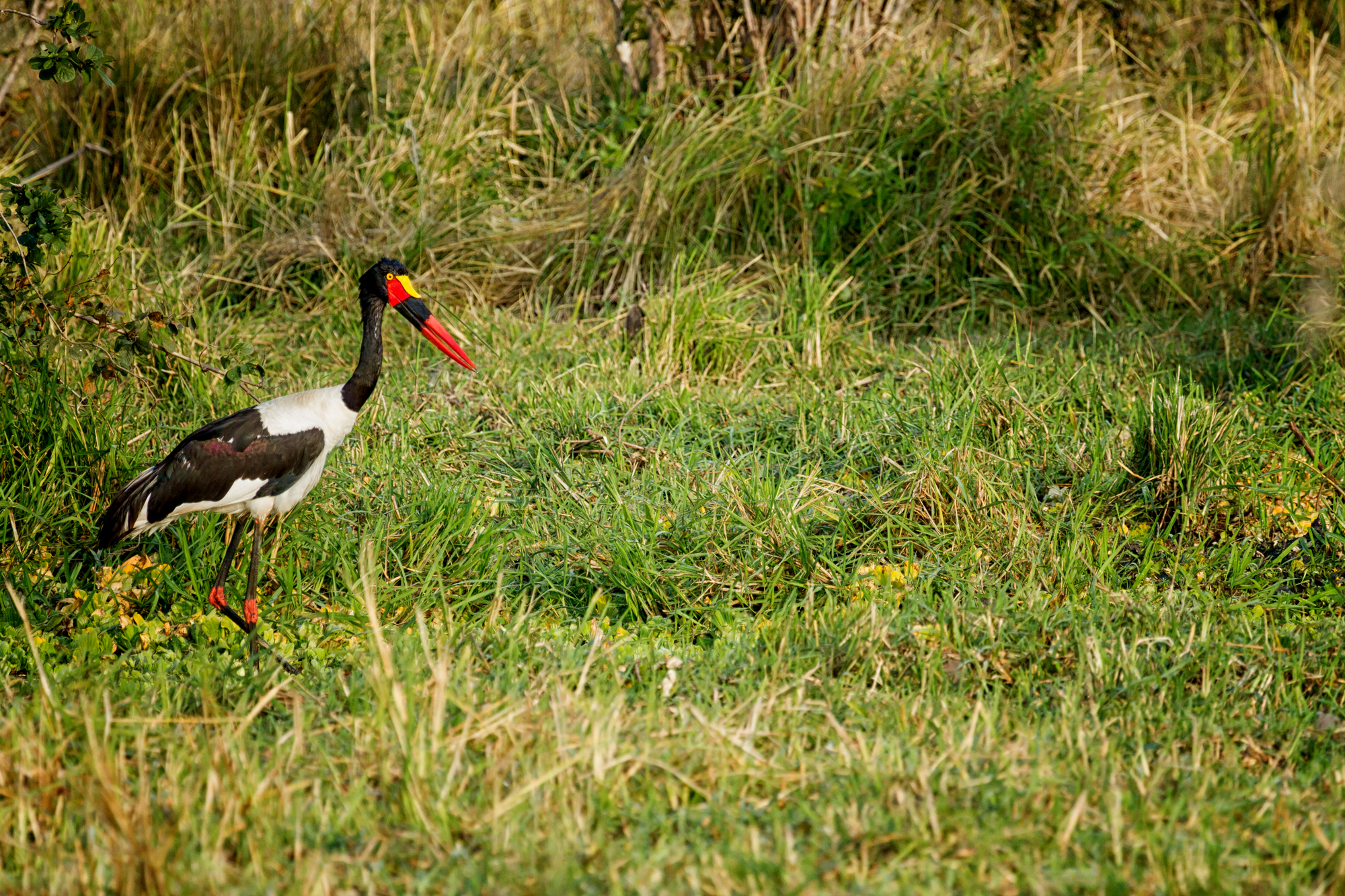
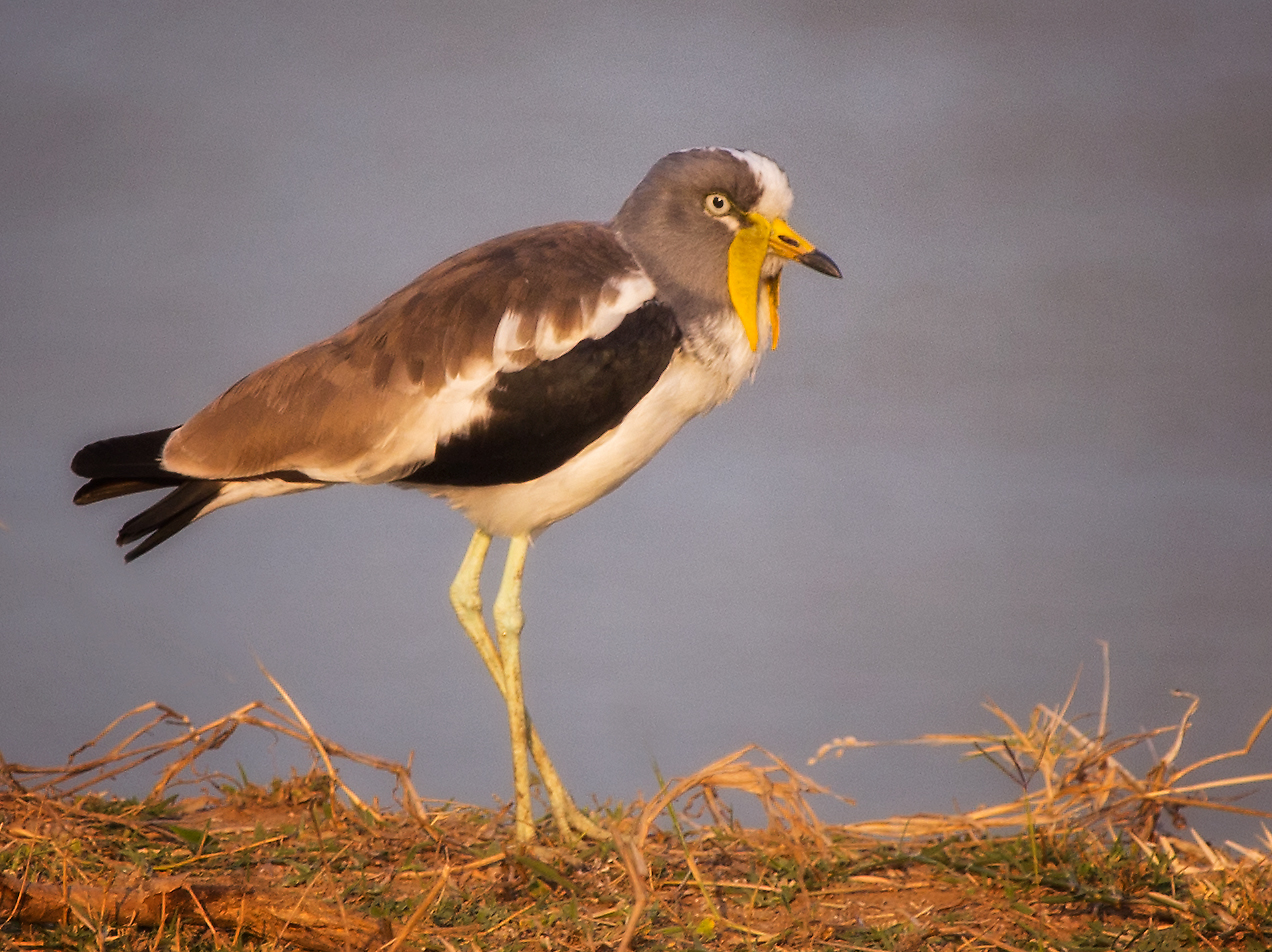
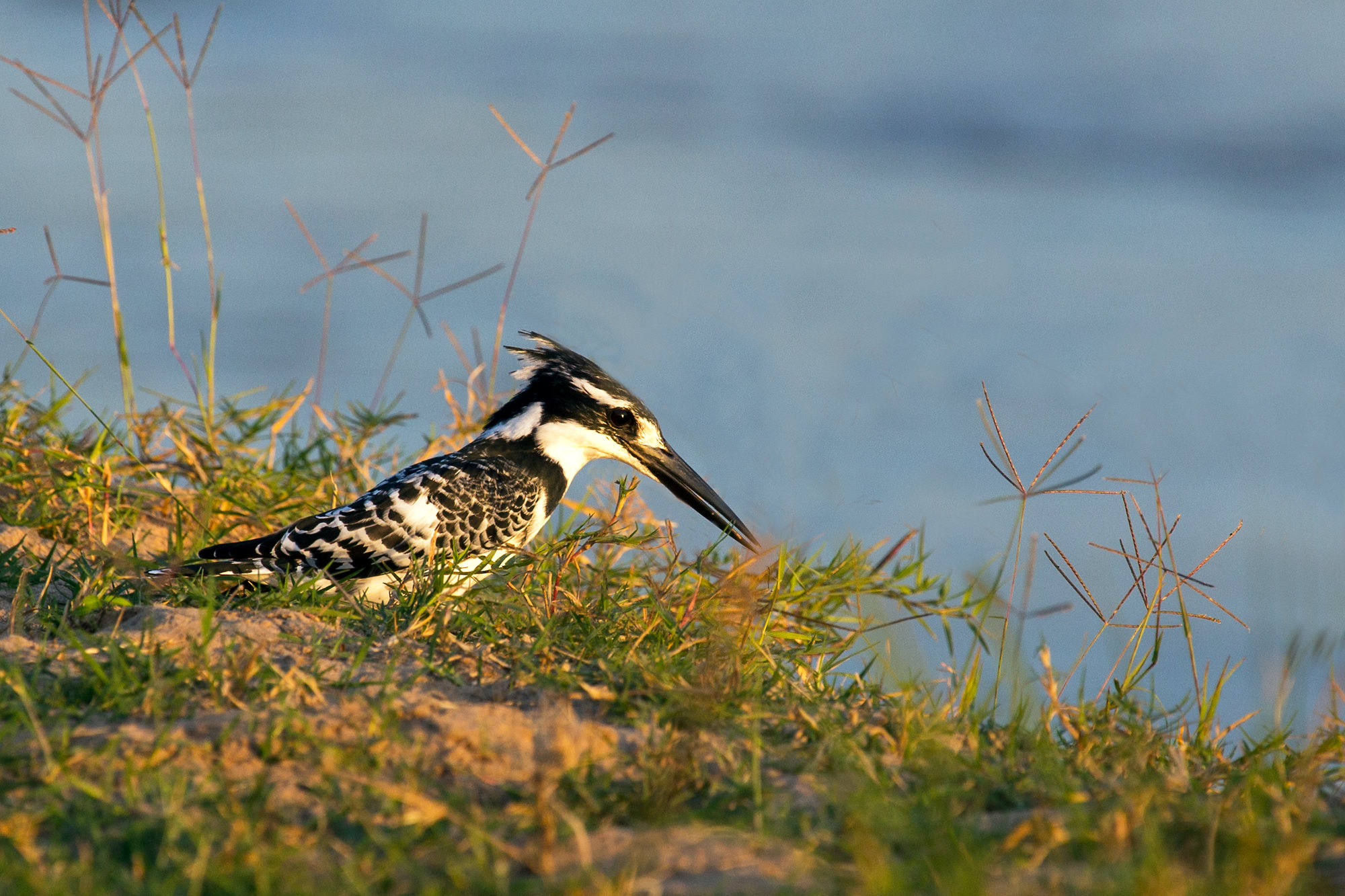

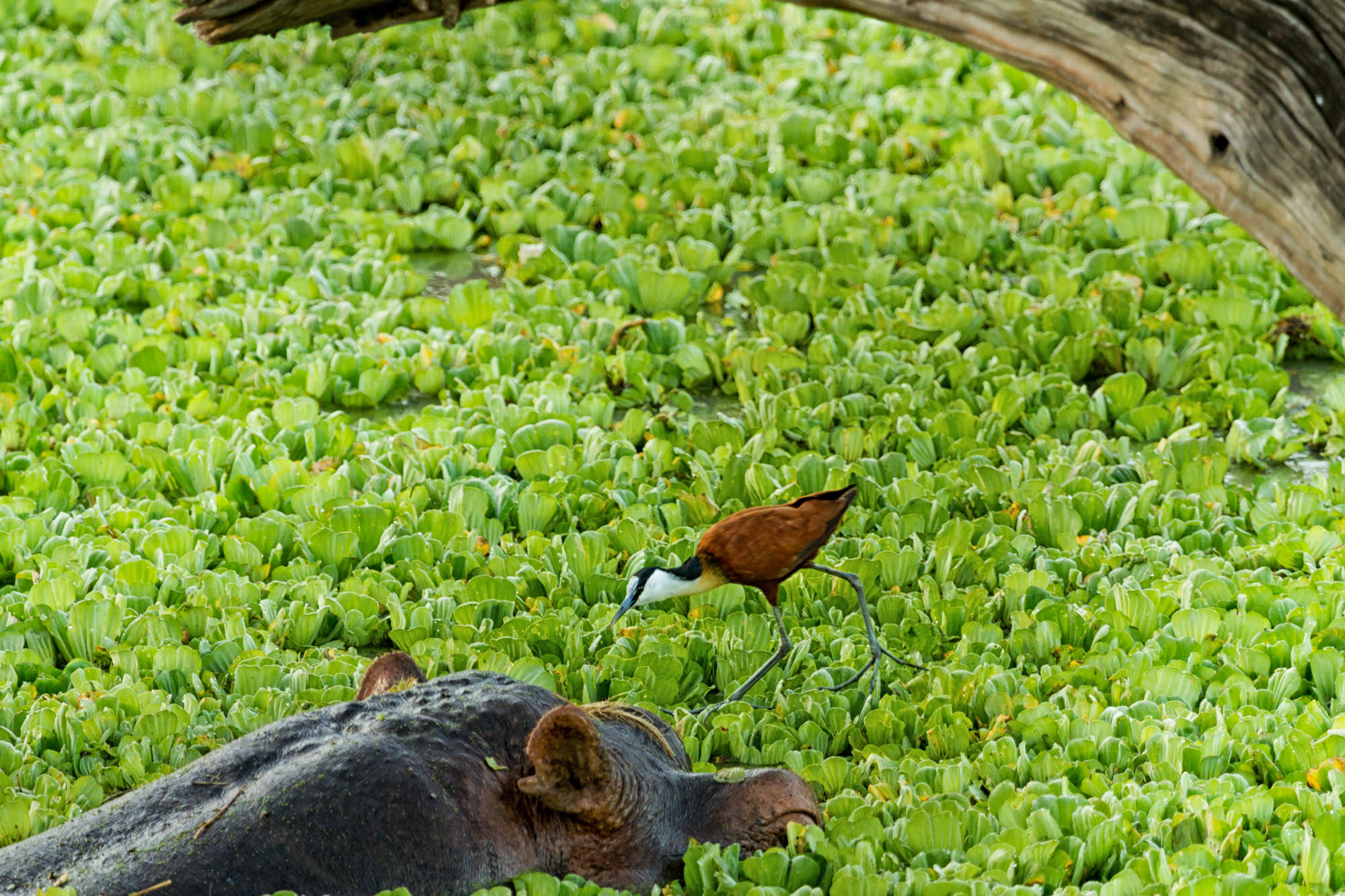

A typical day started with a 5:30 wake-up alarm, dress quickly, meet the guide outside the tent and have a light breakfast - fruit, coffee, cereal, toast and then into the van for an early game drive. We were usually back in camp around 10:30 - just in time to have a big breakfast porridge, meat, eggs toast and more coffee.
This was followed by a mid-day break to rest, sort photos, read and rest up for the afternoon game drive.
We would meet for tea and other drinks plus a bit of cake at 3:30, then head into the bush at 4pm, ready to explore this magnificent wilderness.
Guides were able to identify numerous calls, to track animals, and to anticipate their next move and position us for the best sightings. When it was nearly dark out came a spotlight to find interesting nocturnal residents. We returned to camp at around 8:00 PM for dinner.
We took a couple walking safaris. We left camp, were dropped in the bush with a guide and a guard. On the ground, without engine, experienced a new kind of quiet, full of the sounds of birds. The guide taught us about various tracks, scat, and other signs of game. Walks offered a new perspective an everything.
Kapamba Bushcamp
After five days we transferred to Kapamba Bushcamp. The drive was about three hours. And, while it was a "game" drive it did feel a long commute.
Kapamba Bushcamp overlooking the river
I have been on numerous safaris. So when I made the booking for the bush camp I expected a small crawl-in tent with facilities in the bush near the tent. I'd made sure it would be on a river bank. As a result, I was totally unprepared for a large, elegant, open fronted bedroom with an adjoining bath, huge tub also open to views of the river out front. The room was secured in front with four large sliding metal gates at night, an open work design to prevent the large animals from coming thru. Without even that minor obstruction during the day we looked over the Kapamba River - a fresh water feed to the Luangwa, too shallow for either hippos or crocodile. Very safe and essentially open day and night. The bed, of course had a sheer canopy surrounding it, which was mosquito proof.
We were a short walk from the dining area another large open room, looking out over the river with a firepit lit first thing in the morning. Food and service were fantastic.
Zambian Zebras, called Crawshay's Zebras, are particularly beautiful. This colt couldn't stand still.
On our Kapamba walking safaris we learned more lessons about the digestion of many animals, inspecting the manner in which food was or wasn't digested. We listened to a persistent honeyguide (a bird we never actually saw) who spent the morning with us, singing and singing 'follow me' to the bee hive he wanted help raiding. (By symbiotic custom humans leave the bird a helping in exchange for locating a hive.) We watched a small herd of buffalo from a distance with one mad fellow head-butting and chasing off after warthogs.
Walking safari from Kapamba Bush Camp
After two nights we were sorry to leave Kapamba but happy to return to Flatdogs, for our last three nights of safari. We'd grown fond of our guide, Geoffrey whose father is a teacher in the village. Each evening at sunset we'd pause our afternoon game drive - usually near the river - for a leg-stretch and a drink. Gin and tonic this evening as a full moon rose over the Luangwa.
The Luangwa river already drying into channels it will remain a river into the dry season when the animals become more concentrated here.
At the lodge, Jess & Jamie, took care of us throughout our stay, welcoming us back most mornings and seeing us off in the evenings, settling any questions about tents and schedules, and accommodating our foibles. Food was wonderful and the other travelers we encountered were interesting and good company over a glass of wine, a cup of coffee, or in a land rover.
Evening Impala
Zambia, less known for its safaris than, for example Kenya or Tanzania, makes for a relaxing destination.
Zambia is a multiparty democratic central African country. It became independent of the British South African Company in 1964. The country is slightly larger than Texas. The climate is tropical with a rainy season October to April. The mean elevation is roughly 3700 feet. Two thirds of the country is forested, the other third is mostly agricultural.
The 15 million plus population is made up of 18 named ethnic groups with 18 different languages. Most of the languages are part of the Bantu language. The religion is 75% Protestant and 20% Catholic. There are 88 airports in Zambia, eight with paved runways - one of those in Mfuwe. About 25% of the roads are paved.



